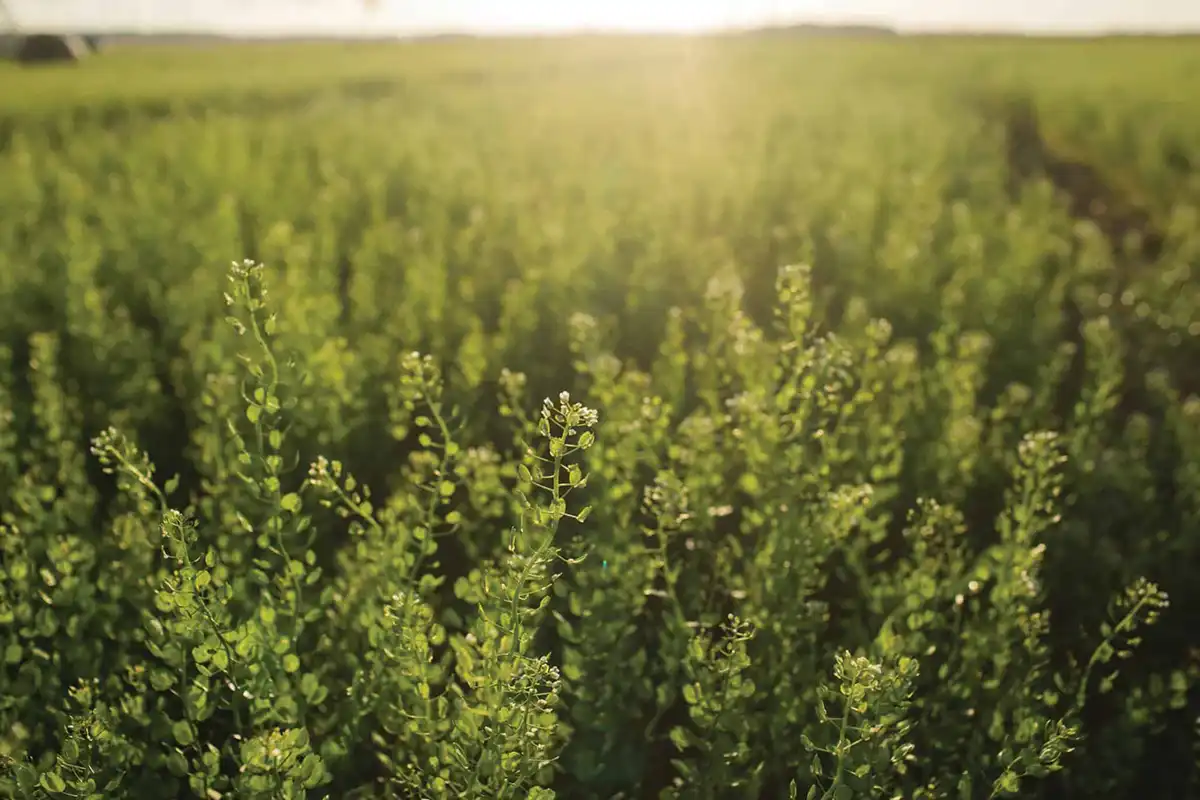The Intermediate Oilseed Crop Alliance (IOCA), advocates for sustainable crops such as pennycress and camelina to meet rising biofuel demands and support environmental goals.
In response to the growing global and U.S. demand for significantly higher biofuel volume, a new U.S. industry initiative called the Intermediate Oilseed Crop Alliance (IOCA) was created in 2023. Current IOCA members include CoverCress Inc., Nuseed, Global Clean Energy, Vision Bioenergy Oilseeds and Yield10 Bioscience.
“Together we are advocating for awareness and adoption of our respective crops as the primary feedstocks that can be grown across much of the U.S. and are expected to contribute the greatest volumes for biofuel production,” alliance representatives say. “Tremendous attention on the need to improve climate/environmental conditions through cleaner-burning fuels via federal support (both financial and policy) are driving demand for biofuels.”
The opportunities for ‘new’ oilseed crops in the production of sustainable aviation fuel (SAF) and other fuels is outlined in the U.S. Department of Agriculture’s report ‘Building A Resilient A Biomass Supply: A Plan to Enable the Bioeconomy in America.’
The alliance says pennycress may generate added revenue for farmers, improve soil health, function as a cover crop, and help mitigate food versus fuel concerns.
Yield10 CEO Olly Peoples reports that in his team’s discussions with many growers from Kansas to Western Canada, it’s very clear they are excited about new revenue opportunities, especially in winter crops.
“There are 180 million acres each year in Canada and the U.S. planted with corn and soybeans and most of it lies fallow during the winter,” he says. “We aren’t making any new land. These crops are a win for the farmer in terms of revenue and soil health, for the nation concerning domestic fuel security and for the planet, in terms of reduced fossil fuel use.”
The alliance is working to ensure all growers that may benefit from growing camelina, carinata and pennycress are aware of the crops. Limited numbers of farmers have already grown one or more of the crops one or more times and word is spreading. Peoples says camelina growers shared with his team and other farmers how impressed they are with its drought tolerance and ability to withstand multiple freeze-thaw cycles.
Nuseed Group’s Brent Zacharias reports that growers across the United States and Latin America are increasingly aware of the value improved agricultural management practices can have locally on soil and the environment. He adds that the global benefits are for feedstock and lower carbon fuels.
To ensure farmers have a market for intermediate oilseeds, IOCA is building a supply chain physically capable of handling small oilseeds and flexible enough to accept new counter-season grain in early summer. IOCA officials say more offtake agreements that connect the field-to-fuel value chain are needed, along with federal funding and incentives that stimulate supply chain infrastructure.
Don Panter, CEO of Vision Bioenergy Oilseeds, adds that IOCA is also working to ensure there is crop insurance for all three crops and determining how planting these intermediate crops might affect crop insurance for the main growing season crops.
“Most of the recent carbon neutrality targets published by fuel companies and airlines will require low-carbon intensity feedstocks to achieve,” Panter says. “The intermediate crops supported by the IOCA can meet the low-carbon intensity requirements, fit into current crop rotations and generate new revenue for farmers. This is a win for not only consumers and producers, but also for the environment as well.”











